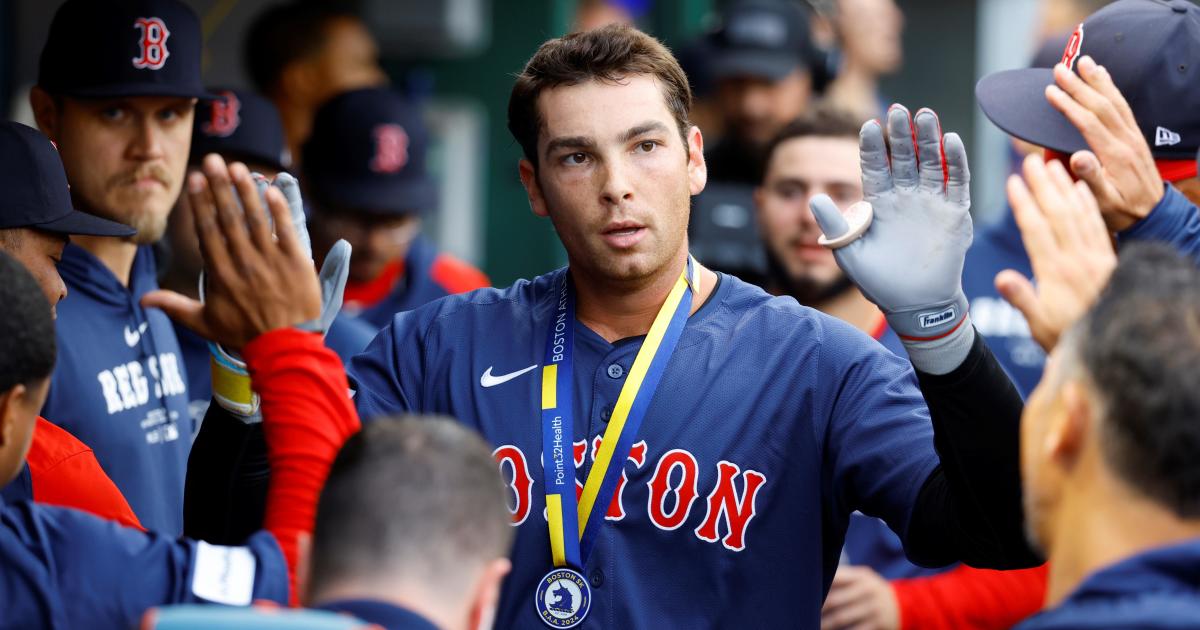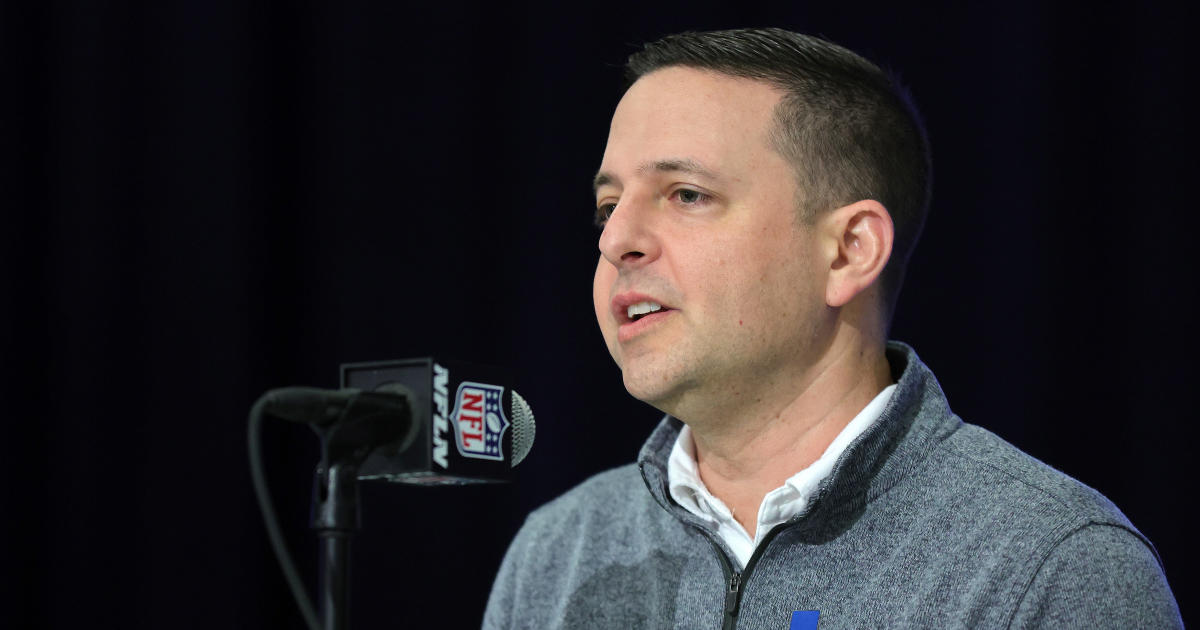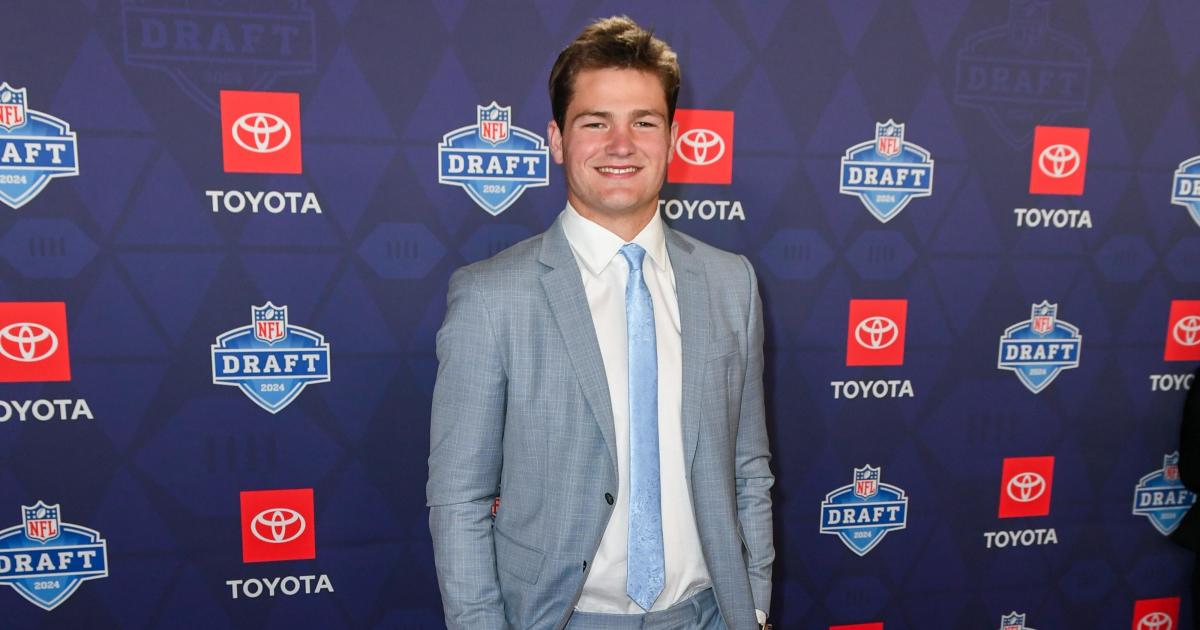In 'Concussion,' The Sport Of Football -- More Than The NFL -- May Have A Problem
"This is not fun for me."
BOSTON (CBS) -- The new movie "Concussion," due out in theaters on Christmas Day, runs roughly two hours long, but it's those six words, an utterance that lasts no more than a second, which most viewers of the film might find themselves repeating in their own minds.
This is not fun for me.
The words in the film are spoken by Dr. Julian Bailes, played by Alec Baldwin, in a conversation with Dr. Bennet Omalu, played by Will Smith. Earlier in his life, Bailes had been the team doctor for the Pittsburgh Steelers. After seeing men whom he considered to be friends dying tragically young, Dr. Bailes became one of the first believers in the research of Dr. Omalu, the man who discovered CTE.
It is a complex issue, one that is certainly not fun for any football lover to digest, and it's an ambitious undertaking for Sony and director/co-writer Peter Landesman. But the film, if seen by millions of Americans, will no doubt make a major impact on the sport of football as we know it.
Note: The film is based on true events, so some material that could be considered "spoiler content" is contained in the story below. However, a great effort was made to not reveal any part of the dramatic narrative from the film.
"Football gave him CTE.
And CTE told him to drink a gallon of antifreeze.
And he died."
-- Dr. Bennet Omalu in 'Concussion,' on former Steeler Terry Long
While the film includes plenty of science and politics, where it has the best chance of connecting with the audience is in its efforts spent toward humanizing these men, their problems, their families, and their circumstances.
We see Mike Webster, in all his glory on the football field, where he earned his reputation as a warrior and a legend. We also see him living in his pickup truck, huffing glue, not in his right mind. We later see him on an autopsy table in front of Dr. Omalu.
We see Justin Strzelczyk, struggling to control his own rage, putting his hands on his wife's throat in front his children. And then we see him ignite his truck in a ball of fire after driving the wrong way on the highway.
We see Andre Waters, waiting outside of NFL headquarters in order to plead with fellow former player Dave Duerson, who at the time was working with the NFL in developing a program to help retired NFL players in need. The plan came woefully short in actually helping, and Waters pleads with great desperation to Duerson for help. Duerson ignores Waters' dire demeanor.
Shortly thereafter, Waters is dead from a self-inflicted gunshot wound. Later, so is Duerson.
These stories are known and have been known, but in the film, they are humans -- men with lives, families, legions of fans. Mixed in with the acting portrayals of these men is footage from their playing days, series of clips that show them lowering their heads into their opponents, unafraid. These are men who in retirement should have every reason to want to live, and yet they chose to cut those lives short in their early 50s, or their mid-40s. Or, in the case of Strzelczyk, at the age of 36.
And if not for the work of Dr. Omalu, we might never have known what drove them to their deaths.
"The look on his face tells you that he got ... JACKED UP!"
--ESPN's Monday Night Football studio crew
What this movie will do to the NFL -- and on a much larger scale, the sport of football -- is the billion dollar question. Skeptics will say that nothing can ever take down the $45 billion behemoth that is the National Football League. Alarmists will say that as soon as America sees the dramatic results that can come from a human absorbing a series of hits to the head over their lives, parents will be pulling their kids out of youth football programs immediately.
The reality is that no, a movie cannot inspire that kind of immediate cultural change, just as the medical discoveries and advancements in neuroscience over the past decade-and-a-half have not worked to change too much about the sport of football. There's more awareness, for sure, and some rule changes have been implemented so that the NFL can avoid the negative publicity that comes from seeing players lying unconscious on a football field during this, an era of much more information than in years prior.
Even still, scenes do play out with regularity each week in the NFL. Just this past month, Vikings quarterback Teddy Bridgewater was knocked out cold in a game against the St. Louis Rams after taking a cheap hit to the head by Lamarcus Joyner. The latter player was fined a mere $23,000; Bridgewater returned to practice a few days later and played in the Vikings' game the very next week.
That very same day that Bridgewater was playing in an NFL game, risking hits to the head from 250-pound linebackers and 300-pound defensive linemen on running plays, Case Keenum was playing quarterback for the Rams. In the final minutes of that game, Keenum was slammed to the ground, his head hitting the turf violently, leaving the quarterback dazed. Even with the help of a teammate, he could not get to his feet, and he spent several moments down on all fours trying to regain his bearings.
Even with trainers on the sideline and an injury spotter watching from a booth in the stadium, Keenum was allowed to stay in the game. He didn't miss a snap ... and he was sacked two plays later.
Nobody from the Rams organization has been or will be punished by the NFL for the incident.
Really, for all the lip service the league has paid to its efforts to prevent head trauma, and for all the cockamamie "solutions" like banning teams from using different helmets for alternate jerseys, the problem remains at the front line of the sport. All that's changed, really, is that ESPN canned the "Jacked Up!" segment in 2008. The segment formerly featured ESPN studio host Tom Jackson setting up each of the top five most punishing hits of the week, ending each clip by setting up a verbal layup for his co-hosts in the studio. "He got ... " Jackson says, before the rest of the panel joins: "JACKED UP!" Each hit is met with laughter and celebration, and it's particularly humorous for the crew when a player shows obvious signs of a concussion.
The segment's presence in the movie spotlights that we have indeed come a long way, even in the past five years.
The progress made in the five years prior to that was, likewise, immense, and just in comparing the first 15 years of the 21st century to the final 15 years of the 20th century, there can be no doubt that we live in a completely different world than the one that existed during the playing careers of the men whose deaths brought about the discovery of CTE.
For a country that values football above most everything else, change comes slow. But it does come.
With the way this movie simplifies the science and blends it with real-life, human images of its consequences, the film will undoubtedly work toward creating more progress.
"Apparently the NFL owns neuroscience. Who knew? ... They want you to say that you made it all up. ... They're terrified of you."
--Dr. Cyril Wecht, to Dr. Bennet Omalu, in 'Concussion'
The trailers for this movie, the official versions of which have garnered roughly 15 million views on YouTube over the past three months and which reached television audiences this past Sunday during NFL games, painted a picture of a distinct battle playing out: Dr. Omalu vs. the NFL. Given how poorly the league has looked in numerous public relations disasters over the past couple of years, such a framework is one that is easy to sell to the public.
And to be sure, the movie does plenty to unveil the years of denial from the NFL regarding concussions and the lasting effects they have on players. In no way does this film portray the NFL in any positive light in that regard. After the NFL bars Dr. Omalu from speaking at the concussion conference that was inspired by his own work, Dr. Bailes informs Dr. Omalu that the entire conference was a sham. "Roger Goodell said Justin Strzelczyk may have gotten his concussions from swimming in a pool," he tells him.
There's also Dr. Joseph Maroon, also known as the neurosurgeon and NFL medical adviser who said just a few months ago that for young children, riding a bike or playing in a playground is more dangerous than playing football. Dr. Maroon's presence in the film is to deny Dr. Omalu's findings on behalf of the NFL, essentially saying that even if 10 percent of American mothers read about his findings in these brains, it will spell the end of football altogether.
There's also subtle hints at racism and xenophobia which Dr. Omalu had to overcome. That included Duerson's character approaching Dr. Omalu after that sham conference and saying, "Take your bull [expletive] science, go back to Africa, and stay away from our game."
(Additionally, there's one bit of plot development regarding one character's personal life that launches perhaps the most egregious charge possible at the NFL. Without revealing the specifics, it ends with a character saying in a heartbreakingly defeated tone, "They [the NFL] destroyed us.")
But anyone expecting this movie to be the downfall of Roger Goodell or a bombshell that could destroy the entire NFL will not get that story. Again, there's a significant amount of reprehensible behavior from the league shown in the film, and for many viewers it will come as new information. But the film did not set out to wage a war on the NFL.
For that matter, despite its weighty treatment of a serious issue, and despite its insistence on not mincing any words, the film manages to capture the conflicting thoughts and feelings that are sure to take place within any enlightened football fan who nevertheless can't help but love the inherently violent game. Football is, at times, a beautiful sport. In one instant it resembles the chaos of a multi-car pile-up, and then, somehow, out of that anarchy comes perfection. Grace. A tight spiral released a split-second before a charging linebacker contacts the quarterback; a fingertip catch while falling to the turf; a brilliantly schemed blitz at just the right moment; an exuberant, primal yell for a job well done.
"You only fail if you don't finish the game," Webster says during his Hall of Fame induction speech. "If you finish, you won."
These are the moments that keep America addicted to football, and this movie not only recognizes that but in a way celebrates it. As a football fan, you don't have to feel guilty. And "Concussion" won't try to make you.
It will, however, force you to think, and it will force America to examine its chosen sport.
"God did not intend for us to play football."
--Dr. Bennet Omalu, in 'Concussion'
Ultimately, the film is something that all football fans should watch. There will be scenes that force them to feel uncomfortable, or angry. Some are sure to actively dislike it. But they should see it.
Brain trauma and its long-term repercussions are issues that have already profoundly changed the way we watch football, and it's begun to change the way the game is played. As time goes on, researchers only discover more about how the brain works -- or in the case of CTE and other head injuries, how the brain doesn't work. It stands to reason, then, that as we continue to uncover more about the most complex and fascinating organ in the human body, those changes will only need to continue.
For anyone who's followed the story closely -- from the discovery of CTE, to the work of Chris Nowinski, Dr. Robert Cantu, Dr. Ann McKee and others at Boston University, to the NFL's class-action settlement with aggrieved former players and so on -- might not learn much new in the film. But they can come away knowing that the people who might not have cared to read tens of thousands of words on a subject that can be unappealing will now increase their knowledge exponentially.
What happens after that, who can say? But at the very least, by way of delivering information in a neatly packaged, well-acted and captivating format, football fans in America are on the verge of learning more about their favorite sport than they ever cared to know. And, as is the central theme of the movie, the more people discover, the worse it becomes for the sport.
Read more from Michael Hurley by clicking here. You can email him or find him on Twitter @michaelFhurley.


